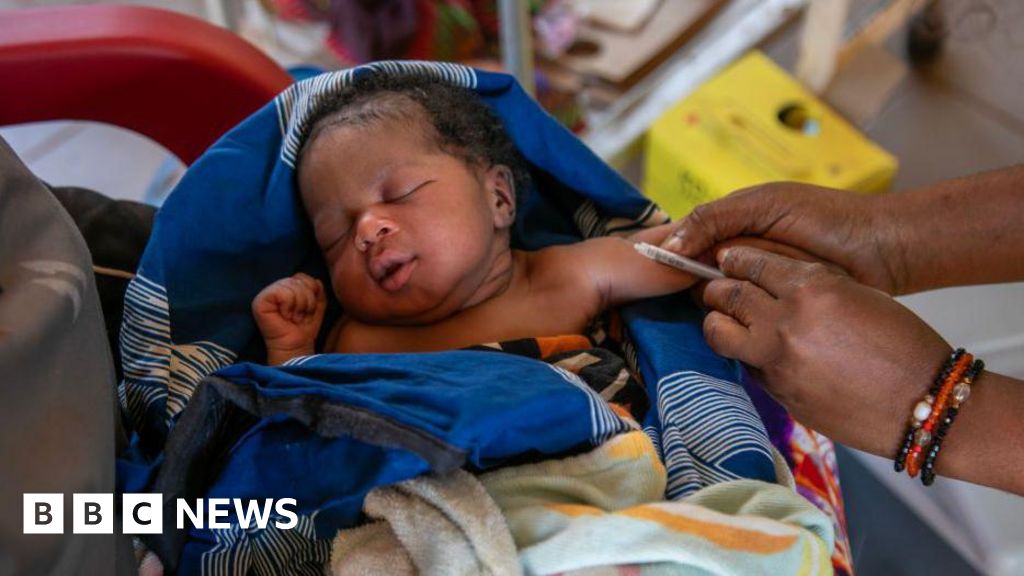
Progress in vaccinating children against life-threatening diseases has stalled over the past two decades, with some countries even regressing, according to a new global study. This alarming trend has been exacerbated by the Covid-19 pandemic, leaving millions of children vulnerable to diseases such as measles, tuberculosis, and polio. Researchers are urging a concerted global effort to ensure more equitable access to vaccines. Experts in child health warn that reductions in international aid for vaccination programs, coupled with rising vaccine skepticism, are creating a “perfect storm.”
The global childhood vaccination initiative has historically been a significant public health success. Since its inception in 1974, over four billion children have been vaccinated, preventing an estimated 150 million deaths worldwide. Vaccine coverage doubled in the nearly five decades leading up to 2023. However, since 2010, progress has stagnated, resulting in significant disparities in vaccine coverage across different regions.
Impact of the Covid-19 Pandemic on Vaccination Efforts
The study, published in the medical journal The Lancet, highlights a worrying decline in measles vaccinations in nearly 100 countries. The Covid-19 pandemic further exacerbated this issue, as lockdowns disrupted vaccine programs. By 2023, approximately 16 million children had not received any childhood vaccinations, with the majority residing in sub-Saharan Africa and South Asia.
Dr. Jonathan Mosser, a study author from the Institute for Health Metrics and Evaluation at the University of Washington, emphasized the critical role of routine childhood vaccinations as one of the most effective public health interventions. “Persistent global inequalities, challenges from the Covid pandemic, and the growth of vaccine misinformation and hesitancy have all contributed to faltering immunization progress,” he stated. Dr. Mosser warned of an increased risk of outbreaks of diseases such as measles, polio, and diphtheria.
“Routine childhood vaccinations are among the most powerful and cost-effective public health interventions available,” said Dr. Jonathan Mosser.
Disparities in Global Vaccination Coverage
Despite the overall success of vaccination programs, significant discrepancies remain between wealthier and lower-income countries. The report’s authors caution that vaccination rates have also declined in Europe, the United States, and other affluent nations. These disparities highlight the urgent need for targeted interventions to address the unique challenges faced by different regions.
Child health experts argue that the combination of reduced funding for international aid and increasing vaccine hesitancy is undermining decades of progress. They call for renewed commitments from governments and international organizations to prioritize childhood vaccination as a critical component of global health strategies.
The Path Forward: Addressing Vaccine Inequality
As the world grapples with the aftermath of the Covid-19 pandemic, the importance of robust vaccination programs has never been more apparent. Experts suggest that addressing vaccine inequality requires a multifaceted approach, including increased funding, public education campaigns to counter misinformation, and the strengthening of healthcare infrastructure in underserved regions.
Dr. Mosser and his colleagues advocate for a global coalition of stakeholders to work collaboratively in overcoming the barriers to vaccine access. This includes leveraging technology to improve vaccine distribution, investing in local healthcare systems, and fostering community engagement to build trust in vaccination programs.
By the Numbers: Since 1974, over 4 billion children vaccinated, preventing 150 million deaths worldwide.
The implications of stalled vaccination efforts are profound, with the potential for resurgent outbreaks of preventable diseases posing a significant threat to global health. As the world moves forward, ensuring that all children benefit from life-saving immunizations must remain a top priority.
In conclusion, the call to action is clear: a unified, global response is essential to safeguard the health of future generations and maintain the hard-won gains of past vaccination efforts. The stakes are high, but with concerted effort and collaboration, the tide can be turned to protect millions of vulnerable children worldwide.






